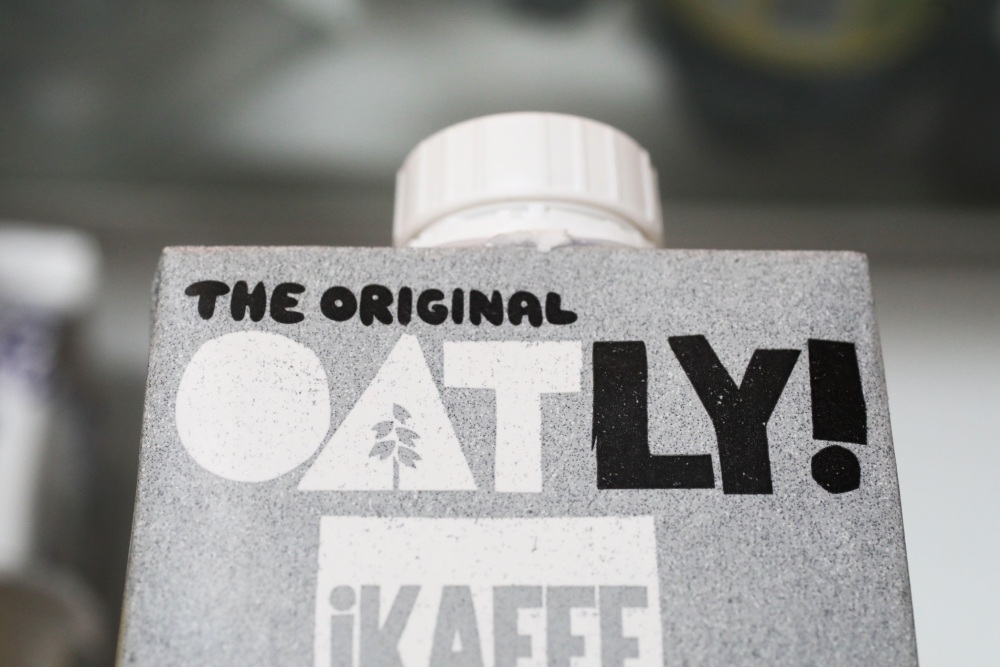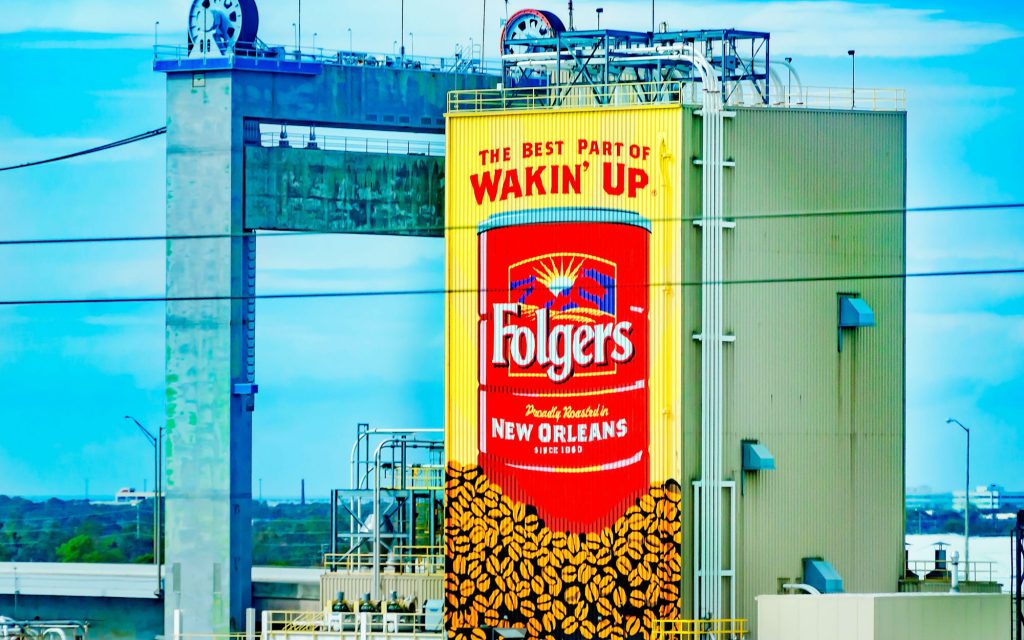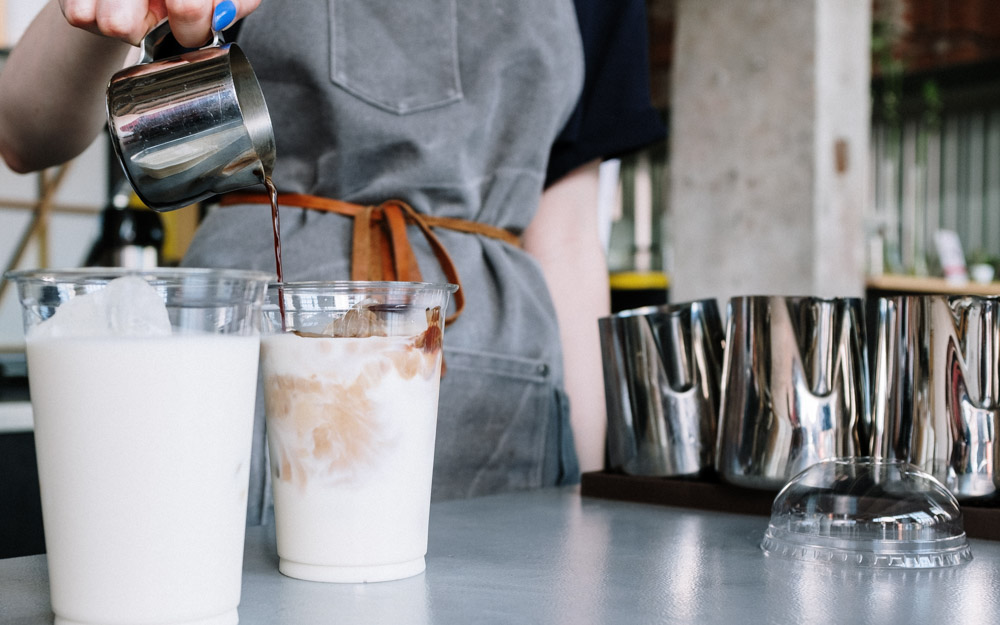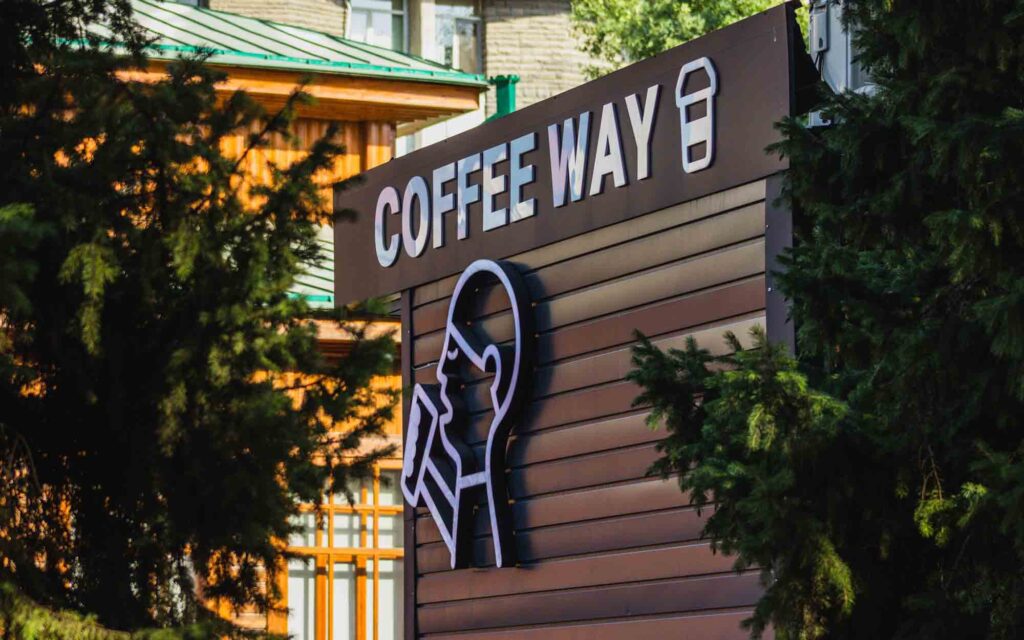Has defaulting to oat milk actually paid off for coffee shops?

The rise of oat milk in specialty coffee has been quite remarkable. In a market once dominated by soy, almond, and coconut products, oat milk has truly come out on top – with some brands even developing an almost cult-like status in the industry.
As baristas and consumers have embraced oat’s creamy texture and neutral flavour, a few notable coffee shops and roasters – including Stumptown, Onyx Coffee Lab, and Blue Bottle – have even defaulted to oat milk. Essentially, this means customers receive oat milk as standard if they order a milk-based beverage – which thereby replaces dairy as the default milk option.
This naturally presents quite a shift in not only how customers experience their coffee, but also how cafés and roasters operate. And while the question of whether consumers are generally happy with this switch is one thing, we also need to consider whether defaulting to oat milk is profitable in the long run.
To learn more, I spoke to Andrea Allen, co-founder of Onyx Coffee Lab, and Jon Perry, Vice President of Direct to Consumer at Stumptown Coffee Roasters. Read on for more of their insight.
You may also like our article on why oat milk got so popular.
How oat milk came out on top in specialty coffee
Oat milk’s ascent to becoming a specialty coffee favourite has been impossible to ignore. According to data from World Coffee Portal, 28.5% of customers at UK branded coffee shops usually order oat milk – which makes it the most popular plant milk in the country.
So how did oat milk become such a firm favourite? It’s largely thanks to Oatly’s direct sales approach to specialty coffee shops. In 2016 and 2017, the brand visited cafés and roasters with cartons of its Barista Edition milk, and baristas were quickly impressed by its foamability and creamy texture.
Since then, other brands of oat milk have also become just as prominent – with the value of the global oat milk market expected to reach US $6.09 billion by 2032.
Andrea Allen is a co-founder of pioneering Onyx Coffee Lab in Arkansas, US. She says that over the last five years, they have seen the popularity of oat milk explode.
“It’s been really cool to see oat milk embraced by popular culture, as opposed to just being a dairy alternative for folks that can’t or don’t want to drink cow’s milk,” she says.
Jon Perry is the Vice President of Direct to Consumer at Stumptown Coffee Roasters – a hugely influential third wave roaster in Portland, Oregon. He says that the company eliminated its surcharge for plant milks in 2019, and that oat milk quickly became its most popular option among their customers.
Why some coffee shops have defaulted to oat milk
The boom in the plant milk market has even led some coffee shops to default to oat milk. Effectively, this signals a shift away from using cow’s milk as standard – and means customers receive oat milk when ordering a milk-based beverage (even if they don’t specifically ask for it).
Key players in the market – including Stumptown, Blue Bottle, and Flash Coffee – have made the switch, with Onyx Coffee Lab going even further to implement a dairy surcharge at its Momentary location.
The reasons to default to oat milk can vary. In Blue Bottle’s case, the company conducted a life cycle assessment of its emissions from café operations, and found that dairy was a leading source of its greenhouse gas emissions. Moreover, after three months of rolling out the transition nationwide, Blue Bottle said oat milk accounted for 63% of its milk-based beverage orders.
Jon says Stumptown also switched because of similar reasons, telling me: “Our move to oat milk came from realising that it was the most popular option on our menu. Dairy had become just 30% of our orders, and to continue to default to cow’s milk felt antiquated.”
Andrea, meanwhile, explains that Onyx based their decision on other factors.
“We defaulted to oat milk at the Momentary Art Facility to maximise our small space – we don’t have a large refrigerator,” she says. “We also believe in pushing boundaries to upend normal café service by surcharging for dairy and setting a normal price for oat milk.”
Has the transition benefitted coffee shops?
Considering how many customers order oat milk, moving away from dairy can make sense for some coffee retailers. Andrea, however, points out that some people still prefer more traditional options.
“There are definitely some folks that prefer dairy and don’t know that we’re using oat, and then need their drink remade,” she says. “We use this as an opportunity to provide great hospitality and to explain why we do what we do – and it usually works out great as we’re always happy to engage with customers.”
Jon agrees, telling me: “There are many pros because the decision is very reflective of our guests’ preferences. The only con is that some customers expect dairy to be the default, which requires more communication during the ordering process. However, providing excellent hospitality helps guide us through that moment.
“Our decision to move to oat milk has been overwhelmingly positive, with very few concerns,” he adds. “The initial move meant we had to inform guests, but with the proper signage, the default is now the new norm.”
Weighing up the costs
Even if more and more customers have started to order oat milk, deciding to default needs to be a careful choice – especially because there are significant profit margin differences between dairy and oat milk.
“We definitely use a higher volume of cow’s milk across our cafés than oat or other dairy alternatives, but not by a large margin,” Andrea says. “In our region of the US, cow’s milk is less expensive than plant milks, which are shipped via distributors from across the country, whereas our cow’s milk is produced and delivered regionally.”
Jons says this is a similar case in Portland, but that the total cost of a beverage needs to be considered.
“The cost of oat milk (and all plant milks) is generally slightly higher than dairy in terms of cost to our business,” he tells me. “We take into consideration the full cost of making our beverages, and then set prices accordingly.
“The plant milk surcharge always felt unnecessary and an abnormal business practice,” he adds. “It makes sense to charge a premium for syrup or an extra shot, but the type of milk is an essential part of an espresso-based drink.”
Another consideration for coffee shops is how different kinds of milk affect latte art and beverage quality. Although the natural sweetness and creaminess of cow’s milk is hard to replicate (and it’s generally the best milk for latte art), oat milk is considered the most similar alternative.
“I think oat milk has a really wonderful flavour, both on its own and when it’s added to coffee,” Andrea notes.
Will more coffee shops default to oat milk?
With oat milk remaining by far the most popular non-dairy option (and even ordered more than dairy in some cases), it wouldn’t be surprising to see more cafés defaulting to oat milk – or ending their plant milk surcharges.
“In the end, I think it depends on what customers want,” Andrea says. “If most of your customers want oat milk, it could make sense to switch.
“I definitely believe some coffee shops could benefit from serving oat as opposed to dairy,” she adds. “Many cafés are small and do not have access to store large amounts of refrigerated milk, so shelf stable oat milk is an advantage.”
Jon emphasises that retailers should consider market trends, as well as balancing costs and prices.
“Our goal is to meet our guests where they’re at and to cater their preferences,” he concludes.
Given its incredible popularity, oat could become the default milk option in more coffee shops – but there are many factors for operators to consider.
Ultimately, it’s about balancing consumer demand with business costs, and what makes sense for each individual coffee shop.
Enjoyed this? Then read our article on why coffee shops need to focus more on milk quality.
Photo credits: Jaxon Nash, Onyx Coffee Lab, Stumptown Coffee Roasters
Perfect Daily Grind
Want to read more articles like this? Sign up for our newsletter!
The post Has defaulting to oat milk actually paid off for coffee shops? appeared first on Perfect Daily Grind.





Responses